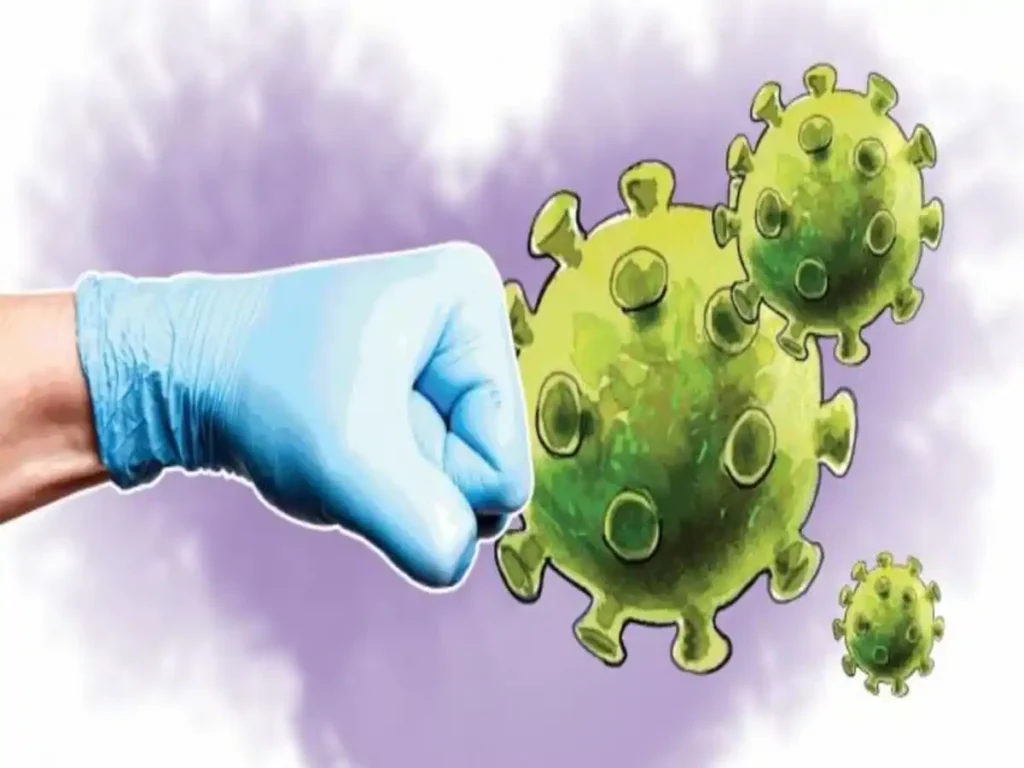Eye flu, or conjunctivitis, is a nasty eye infection that makes your eyes red, itchy and watery. It can be caused by different things, such as germs, allergies or chemicals. It can also spread easily from one person to another, so you need to be careful and take good care of your eyes. In this blog post, we will show you how to spot the signs of eye flu, how to treat it effectively and how to prevent it from coming back. Plus, we will share some awesome tips on how to keep your eyes healthy and happy all year round. Let’s get started!

How to Spot the Signs of Eye Flu
Eye flu can affect one or both eyes and can have different symptoms depending on what causes it. Some common signs are:
- Redness of the eye or eyelid
- Itching or burning sensation in the eye
- Watery or pus-like discharge from the eye
- Crusting of the eyelashes or eyelids
- Swelling of the eye or eyelid
- Sensitivity to light or blurred vision
If you notice any of these signs, you may have eye flu and you should see a doctor as soon as possible. Eye flu can sometimes lead to complications that can affect your vision, so don’t ignore it or hope it will go away by itself.
How to Treat Eye Flu Effectively
The treatment of eye flu depends on what causes it and how severe it is. Some general measures that can help you feel better and speed up your recovery are:
- Applying a cold compress or a warm washcloth to the affected eye to reduce swelling and discomfort
- Using artificial tears or lubricating eye drops to moisten and soothe the eye
- Cleaning the eye gently with a cotton ball soaked in warm water to remove any crusts or discharge
- Avoiding rubbing or touching the eye to prevent further irritation or infection
- Avoiding wearing contact lenses until the infection clears up
- Avoiding sharing personal items or makeup with others to prevent spreading the infection
Depending on the type of eye flu, your doctor may also prescribe some specific treatments, such as:
- Viral conjunctivitis: This type of eye flu usually goes away on its own within a week or two without any specific treatment. However, in some cases, your doctor may give you antiviral eye drops or ointments to reduce the duration and severity of the infection. You may also take oral antihistamines to relieve itching and allergy symptoms.
- Bacterial conjunctivitis: This type of eye flu may require antibiotic eye drops or ointments to kill the bacteria and prevent complications. You should follow your doctor’s instructions carefully and complete the course of treatment. You may also need oral antibiotics to treat underlying bacterial infections.
- Allergic conjunctivitis: This type of eye flu can be managed with antihistamine eye drops or tablets to reduce inflammation and allergy symptoms. You may also need steroid eye drops to control severe allergic reactions. Additionally, you should avoid allergens or use allergy shots to prevent future episodes.
- Irritant conjunctivitis: This type of eye flu can be treated by removing the source of irritation and rinsing the eye with clean water or saline solution. You may also need anti-inflammatory eye drops to reduce redness and pain. If the irritation is caused by contact lenses, you should change the type or brand of lenses or use proper lens care to prevent recurrence.
How to Prevent Eye Flu from Coming Back
Eye flu can be prevented by following some simple hygiene and lifestyle tips, such as:
- Washing your hands frequently with soap and water, especially before and after touching your eyes, nose or mouth
- Avoiding close contact with people who have eye infections or cold-like symptoms
- Not sharing personal items or makeup with others
- Cleaning and disinfecting surfaces that may come into contact with your eyes, such as eyeglasses, contact lenses and their cases
- Following proper contact lens care guidelines recommended by your eye care professional
- Avoiding rubbing your eyes or using dirty fingers to apply eye drops or ointments
- Covering your mouth and nose with a tissue or elbow when you cough or sneeze to prevent spreading germs
- Staying home if you are sick and seeking medical attention promptly if you have symptoms of an eye infection
- Getting vaccinated against diseases that can cause eye infections, such as measles, chickenpox or herpes simplex
How to Keep Your Eyes Healthy and Happy All Year Round
Eye flu is not the only thing that can affect your eyes. There are many other factors that can impact your eye health and vision, such as aging, stress, diet, screen time, sunlight exposure and more. Here are some awesome tips on how to keep your eyes healthy and happy all year round:
- Eat a balanced diet rich in antioxidants, vitamins and minerals, such as fruits, vegetables, nuts, seeds, fish and eggs. These foods can help protect your eyes from damage and diseases, such as cataracts, glaucoma and macular degeneration.
- Drink plenty of water to keep your eyes hydrated and prevent dryness and irritation. Water can also help flush out toxins and waste products from your eyes and body.
- Exercise regularly to improve your blood circulation and oxygen delivery to your eyes. Exercise can also help lower your blood pressure and cholesterol levels, which can reduce the risk of eye problems, such as diabetic retinopathy and retinal vein occlusion.
- Get enough sleep to rest and rejuvenate your eyes. Sleep can also help prevent eye strain, fatigue and dark circles. Aim for at least 7 to 8 hours of quality sleep every night.
- Limit your screen time to avoid eye strain, headaches and blurred vision. Screen time can also disrupt your sleep cycle and affect your eye health. Try to follow the 20-20-20 rule: every 20 minutes, look away from the screen at something 20 feet away for 20 seconds. You can also use blue light blocking glasses or filters to reduce the harmful effects of blue light from screens.
- Wear sunglasses to protect your eyes from harmful UV rays and glare. Sunglasses can also help prevent eye diseases, such as cataracts, pterygium and macular degeneration. Choose sunglasses that block 99% or more of both UVA and UVB rays and have a wraparound design to cover the sides of your eyes.
- Have regular eye exams to check your vision and eye health. Eye exams can help detect any changes or problems in your eyes before they become serious or irreversible. You should have an eye exam at least once a year or more often if you have any risk factors or symptoms of eye problems.
Final Thoughts
Eye flu is a common eye infection that can cause discomfort and affect your vision. It can be caused by various factors, such as germs, allergies or chemicals. The treatment and prevention of eye flu depend on its cause and severity. By following some simple hygiene and lifestyle tips, you can protect your eyes and avoid spreading the infection to others. You can also keep your eyes healthy and happy all year round by eating well, drinking water, exercising, sleeping, limiting screen time, wearing sunglasses and having regular eye exams. Remember, your eyes are precious and deserve the best care possible. Take good care of them and they will take good care of you! 😊
References
: Eye Flu Treatment: Symptoms, Causes, and Home Remedies. (n.d.). Retrieved from https://vims.ac.in/vims-hospital/eye-flu-conjunctivitis-treatment-symptoms-causes-and-home-remedies/
: Eye flu dos and don’ts: How to prevent and recover from infection. (2023, July 30). Retrieved from https://www.financialexpress.com/healthcare/wellness/eye-flu-dos-and-donts-how-to-prevent-and-recover-from-infection/3192258/
: Eye Flu: Know the Causes, Symptoms, Types and Remedies. (2023, July 24). Retrieved from https://www.news18.com/lifestyle/health-and-fitness-eye-flu-causes-symptoms-types-remedies-8412283.html
: Puffy Eyes: Symptoms, Causes, and How to Get Rid of Them. (n.d.). Retrieved from https://www.verywellhealth.com/how-to-get-rid-of-puffy-eyes-5105091
How useful was this post?
Click on a star to rate it!
Average rating 0 / 5. Vote count: 0
No votes so far! Be the first to rate this post.





